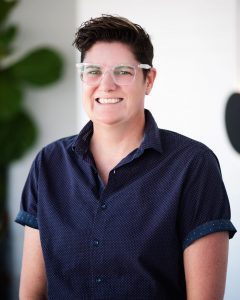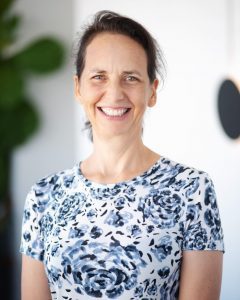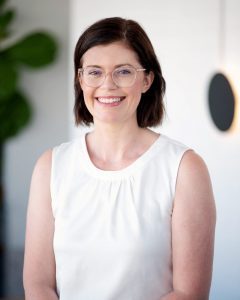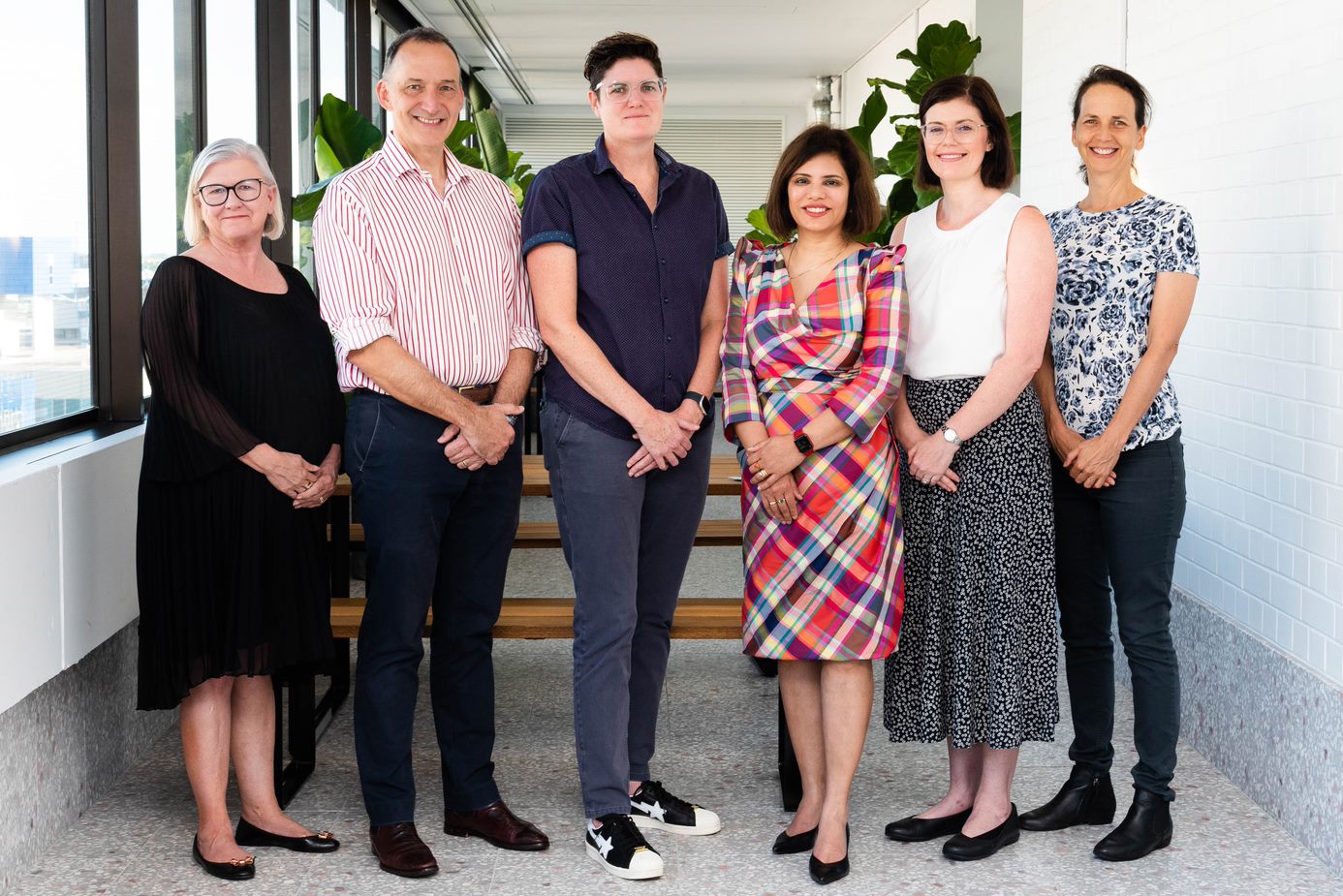- Foreword
- Message from Board Chair & Chief Executive
- 2023 Clinical Research Fellowships
- A message from the RBWH Foundation
- A message from The Common Good
- Metro North Research Excellence Awards
- Research stories
- ICU of the Future
- New approach ruling out pulmonary embolism
- Improving access to healthcare in the prison environment
- Safety and efficacy of peripheral versus centrally administered vasopressor infusion
- COVID-19 learnings set to inform future policy
- Telomere study could provide key to treating debilitating lung disease
- Productive Ward – Releasing time to care
- Brain organoids to revolutionise epilepsy treatment
- Reducing weight stigma in maternity care
- Parkinson’s Disease Check-In program giving people a voice
- Trial brings new treatment for common heart condition
- Teledentistry study shows promise in residential aged care
- Research fellow to boost Oral Health evidence-based care
- Study explores best approach to surgery for painful shoulder osteoarthritis
- The development and pilot testing of a stroke telerehabilitation decision toolkit
- Metro North Health delivers world-first breast scaffold surgery
- Regenerative jawbone hard at work care of collaborative Metro North Health approach
- Jamieson Trauma Institute leads e-scooter and e-bike injury research to drive community safety
- Forgotten fathers in pregnancy and obstetrics
- Putting the Spotlight on nursing and midwifery research
- Improving the health self-efficacy of stroke survivors
Clinician Research Fellows
Clinician researchers are uniquely placed to understand and investigate the cutting-edge healthcare needs of our patients and community with unparalleled opportunities to provide insight into the workings of our health services. The inaugural Clinician Research Fellowships program was introduced in 2019 to provide targeted career support opportunities for clinician researchers in Metro North.
The Metro North Clinician Research Fellowships program has now provided protected research time for 24 health professionals to concurrently pursue their clinical and research careers with four years of clinical backfill each.
As the first round of Clinician Research Fellowship support comes to a close, the four successful clinician researchers have been awarded over $4.3 million in grant funding and published more than 120 peer reviewed journal articles.
Metro North are pleased to award the fifth round of Clinician Research Fellows.
2023 Clinician Research Fellows
Dr Elizabeth Marsden, RADAR Rapid Response, Caboolture Hospital
RADAR Emergency Falls and Orthopedic Residential Model (REFORM)

Dr Elizabeth Marsden
Elizabeth’s team is addressing the need for innovations in healthcare of older adults in residential aged care facilities to avoid an emergency department presentation for a fracture. This novel patient-centred model of care utilises a multidisciplinary outreach team of nurse practitioners, geriatricians, emergency physicians, and pharmacists to diagnose and manage falls and upper limb fractures in older adults in their own residence rather than in the emergency department. The vision for the RADAR emergency falls and fracture orthopedic residential model (REFORM) and Elizabeth’s fellowship is to provide a value-based pragmatic ED substitution service enabling timely access to specialist care for older adults in residential aged care facilities. Her research program will comprise three interrelated projects:
- a process evaluation of the REFORM model of care structure, processes, and outcomes,
- a diagnostic accuracy of bedside point-of-care ultrasound for older adults with a suspected acute distal radius fracture, and
- a randomised controlled trial in residents with dementia and a distal radius fracture to determine if plaster cast colour leads to fewer cast removals.
Associate Professor Alka Kothari, Obstetrics & Gynaecology, Redcliffe Hospital
Supporting fathers during a traumatic pregnancy: Towards holistic care

Associate Professor Alka Kothari
Alka’s mission is to is to build sustainable systems to universally identify and proactively support ‘at risk’ fathers, especially after a traumatic pregnancy and childbirth. Unfortunately, maternal or fetal complications occur in up to one-third of pregnancies resulting in serious mental health consequences for the father, mother, and the entire family unit. While there is targeted support afforded to women during pregnancy and postpartum, this is not the case for fathers. Fathers are also typically reluctant to access and accept care and support due to stigma and societal constraints, which highlights the importance of tailored father-friendly solutions. Alka’s aim is to develop appropriate interventions to support the psychological health and wellbeing of fathers, particularly after a traumatic event. Her vision is to broaden the scope of obstetric services to be father-inclusive, holistic, and equitable which will in turn target a major unmet need to ensure a best start to life for all children by promoting the health and wellbeing of both mothers and fathers.
Dr Julie Adsett, Physiotherapy, Royal Brisbane and Women’s Hospital
Time to Get Moving: Creating active hospitals to reduce hospital-associated functional decline

Dr Julie Adsett
Julie’s intention is to create ‘active hospitals’ where staff and systems safely support greater physical activity to optimise patients’ functional recovery after acute illness and surgery. Underpinned by multidisciplinary clinical and organisational expertise, consumers’ lived experience, contemporary implementation science methods, and rigorous real-world evaluation, this collaborative research program will create, synthesise, implement, evaluate, and share evidence to improve functional outcomes and foster a culture that prioritises function and physical activity.
Dr Sarah Andersen, Dietetics and Food Services, RBWH
Using prebiotic fibre supplementation to improve patient outcomes during treatment for haematological malignancies

Dr Sarah Andersen
Sarah will use her fellowship to complete research that builds the evidence and addresses knowledge gaps on how nutrition can help optimise patient outcomes during haematological cancer treatment. Her research will assess the feasibility of prebiotic fibre supplementation and assess if it can protect a healthy microbiome and reduce complications from treatment. It will build the evidence on optimal nutrition support during haematological cancer treatment to enable future translation of these findings into clinical practice, and to improve patient care and outcomes.
Towards integrated career pathways
The Metro North Research Strategy 2023-2027 sets our intention to develop integrated research career pathways that allow us to retain, train and attract a world class research active workforce and to develop and consolidate their research skills at any stage in their career. This will require collaboration across the health and academic sector to strive for consistency and equity of opportunity for our clinician researchers.
Through the new research strategy, Metro North will look to work collaboratively within our health service across professional disciplines, facilities and directorates, with Queensland Health, our academic partners, charitable foundations, and professional colleges and training organisations to create an integrated career support pathway. This integrated pathway will cover the research career continuum, from pre-research higher degree through to the established clinician researcher stage.
One of the ways in which Metro North intends to achieve this is by pioneering the Queensland Training for Research Active Clinicians (QTRAC) pathway. This will open and maintain a diversity of career pathways traversing university and health settings and increase the strategic engagement and alignment between universities and Metro North Health.
Another of the objectives of the new Research Strategy is to work with our partners to enhance how we collectively leverage the skills and expertise of clinician researchers, reduce duplication of services, and leverage our joint reputations to make the most of opportunities by establishing a partnership engagement framework for jointly funded positions in Metro North Health which sets best practice principles for conjoint arrangements and externally funded positions.
The benefits of establishing fellowship schemes to cater for these cohorts will be to develop a strong pipeline of researchers with capabilities in research collaboration, translation, and commercialisation.

Adjunct Associate Professor Jackie Hanson and Professor Dan Chambers pictured with the 2023 Metro North Research Fellow from left to right: Dr Elizabeth Marsden, Associate Professor Alka Kothari, Dr Sarah Andersen and Dr Julie Adsett.
